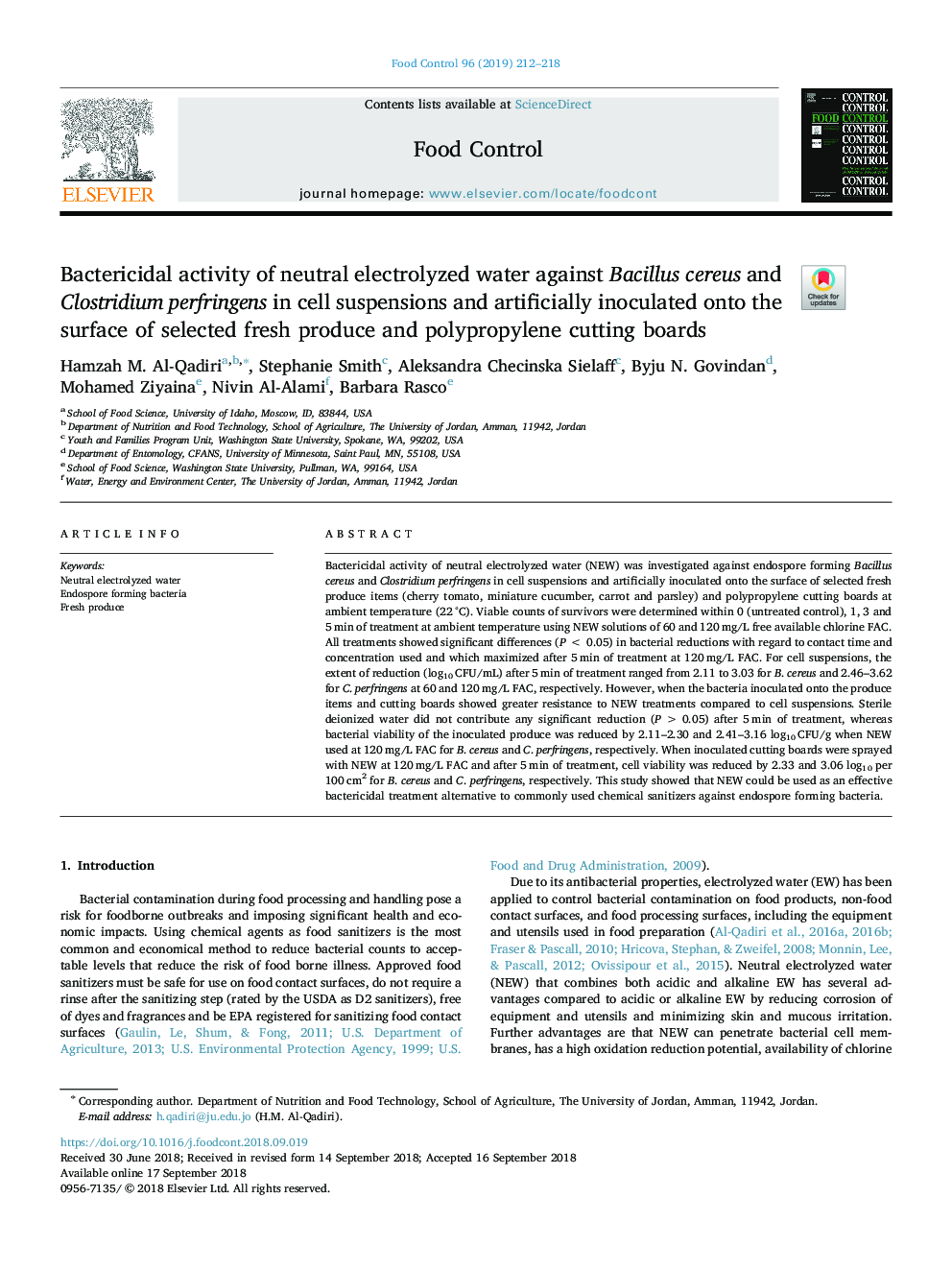| Article ID | Journal | Published Year | Pages | File Type |
|---|---|---|---|---|
| 11030340 | Food Control | 2019 | 7 Pages |
Abstract
Bactericidal activity of neutral electrolyzed water (NEW) was investigated against endospore forming Bacillus cereus and Clostridium perfringens in cell suspensions and artificially inoculated onto the surface of selected fresh produce items (cherry tomato, miniature cucumber, carrot and parsley) and polypropylene cutting boards at ambient temperature (22â¯Â°C). Viable counts of survivors were determined within 0 (untreated control), 1, 3 and 5â¯min of treatment at ambient temperature using NEW solutions of 60 and 120â¯mg/L free available chlorine FAC. All treatments showed significant differences (Pâ¯<â¯0.05) in bacterial reductions with regard to contact time and concentration used and which maximized after 5â¯min of treatment at 120â¯mg/L FAC. For cell suspensions, the extent of reduction (log10â¯CFU/mL) after 5â¯min of treatment ranged from 2.11 to 3.03 for B. cereus and 2.46-3.62 for C. perfringens at 60 and 120â¯mg/L FAC, respectively. However, when the bacteria inoculated onto the produce items and cutting boards showed greater resistance to NEW treatments compared to cell suspensions. Sterile deionized water did not contribute any significant reduction (Pâ¯>â¯0.05) after 5â¯min of treatment, whereas bacterial viability of the inoculated produce was reduced by 2.11-2.30 and 2.41-3.16 log10â¯CFU/g when NEW used at 120â¯mg/L FAC for B. cereus and C. perfringens, respectively. When inoculated cutting boards were sprayed with NEW at 120â¯mg/L FAC and after 5â¯min of treatment, cell viability was reduced by 2.33 and 3.06 log10 per 100â¯cm2 for B. cereus and C. perfringens, respectively. This study showed that NEW could be used as an effective bactericidal treatment alternative to commonly used chemical sanitizers against endospore forming bacteria.
Related Topics
Life Sciences
Agricultural and Biological Sciences
Food Science
Authors
Hamzah M. Al-Qadiri, Stephanie Smith, Aleksandra Checinska Sielaff, Byju N. Govindan, Mohamed Ziyaina, Nivin Al-Alami, Barbara Rasco,
